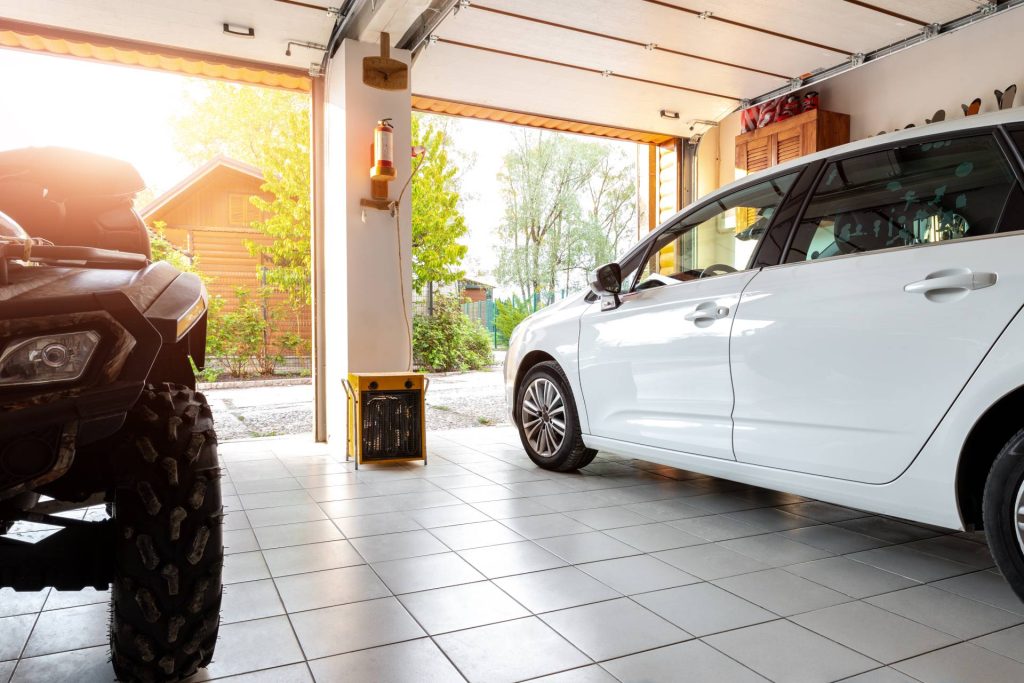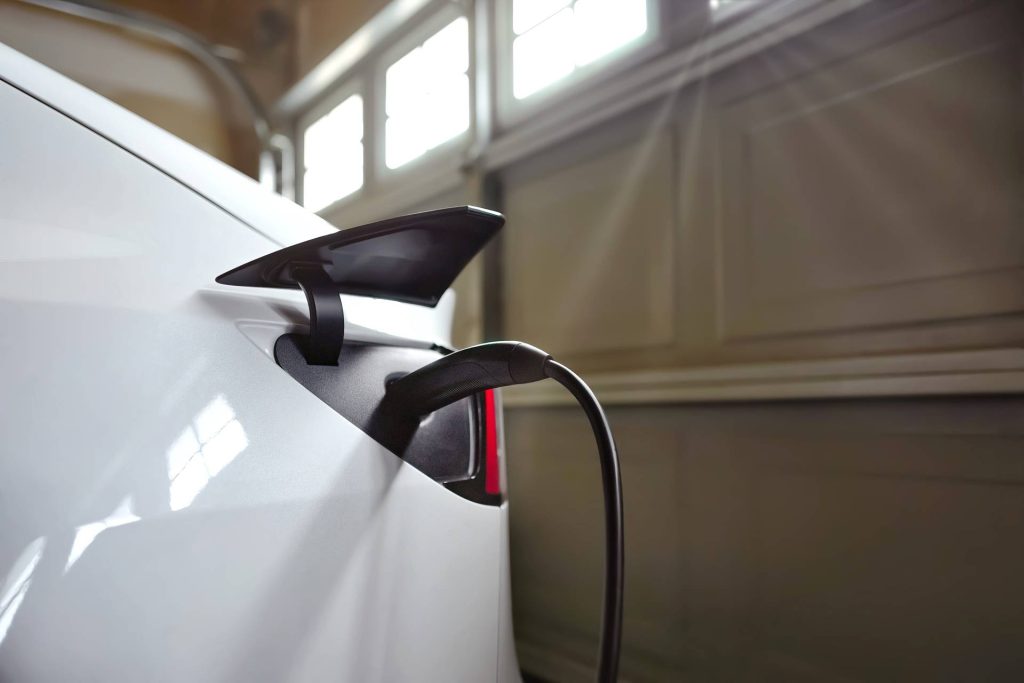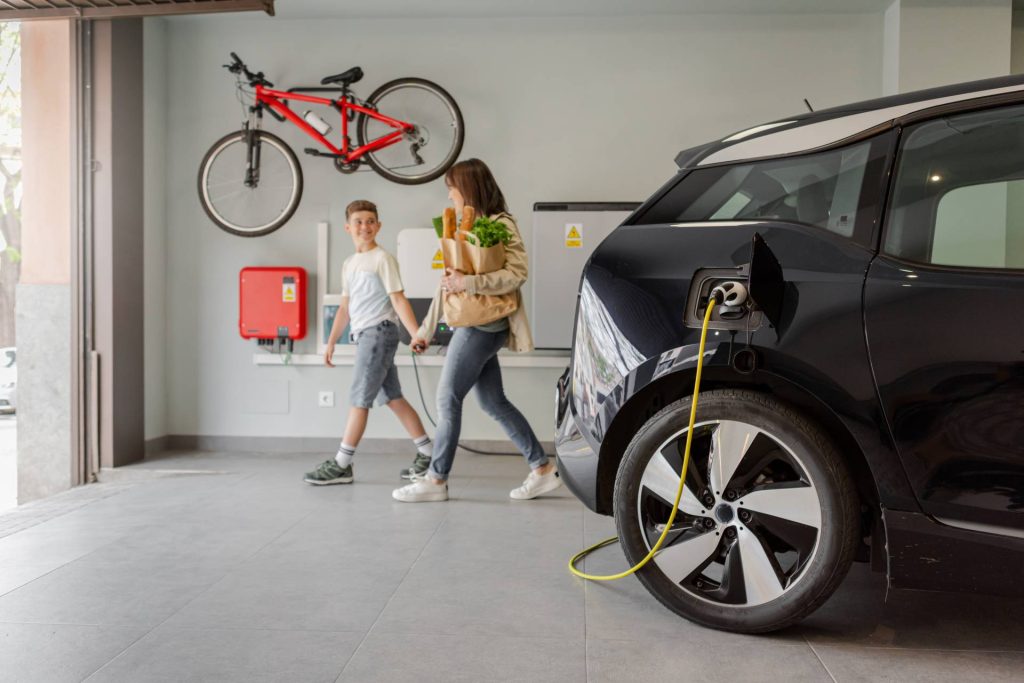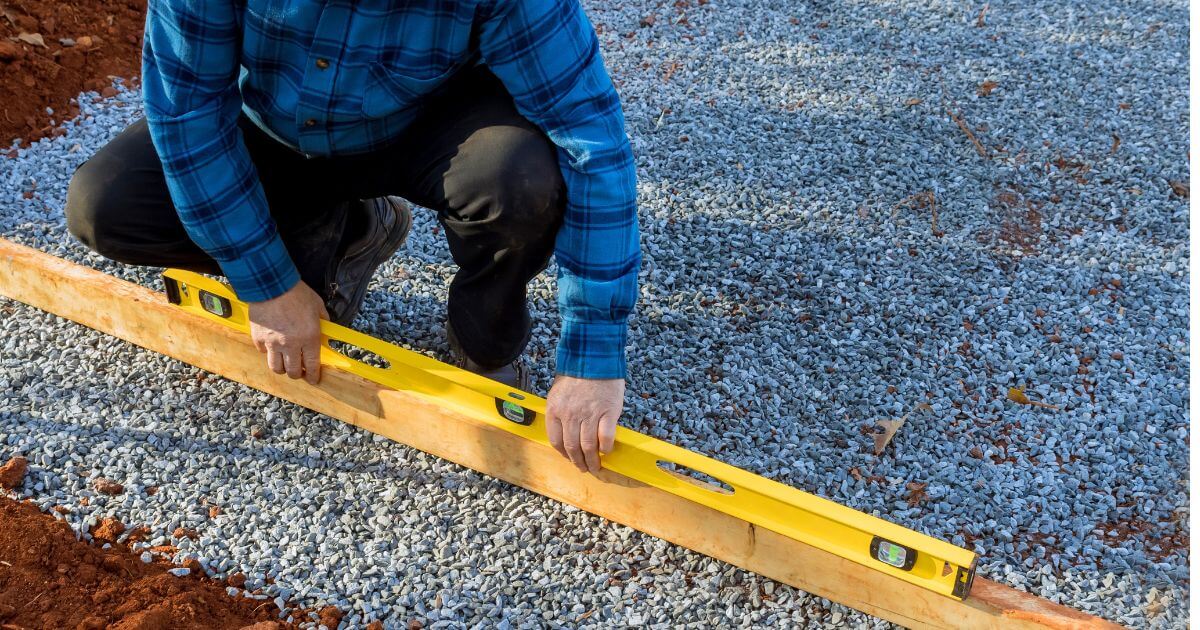5 Ways Garage Door Insulation Will Extend Your Electric Vehicle’s Lifespan

Garage door insulation will improve the comfort, energy efficiency, and functionality of your garage space, while providing several practical benefits for both homeowners and their properties, including electric vehicles.
Discover the added benefits of insulating your garage door and garage space:
- Temperature Control: Garage door insulation helps regulate the temperature inside the space, keeping it cooler in the summer and warmer in the winter. This can lead to a more comfortable environment and reduce energy costs.
- Energy Efficiency: By maintaining a more stable indoor temperature, insulated garage doors can reduce the need for heating or cooling, leading to lower energy bills
- Noise Reduction: Insulation helps dampen external noise, making your garage quieter and reducing the amount of noise that enters your home from the garage.
- Improved Durability: Garage door insulation can provide an extra layer of protection against weather elements, which can prolong the lifespan of your garage door by preventing warping, cracking, or rusting.
- Protection of Stored Items: If you use your garage for storage, insulation can help protect your belongings from extreme temperature fluctuations, humidity, and other environmental factors.
Garage door insulation protects your electric vehicle in several ways. By stabilizing the temperature, your electric vehicle’s life span and battery life will be well-preserved and extended.

240 Volt Outlet Installation Requires Careful Planning
Equipping your garage with the necessary electric vehicle accessories and hook-ups is paramount to its performance and maintenance. Besides weatherproofing your home’s garage and including garage door insulation, adding the correct and necessary electrical outlets to your space is a key step in the process.
Using a 240 volt outlet charges electric cars faster. Explore the five most common types of home electric vehicle chargers:
- NEMA 5-15 Charger: This is a basic Level 1 charger that comes with most electric vehicles. It plugs into a standard 120-volt household outlet (NEMA 5-15) and provides a slow charging rate of about 2 to 5 miles of range per hour.
- NEMA 14-50 Charger: A NEMA 14-50 Level 2 charger requires a 240 volt outlet and provides faster charging, delivering around 20 to 30 miles of range per hour. It’s commonly used for RVs and electric vehicle charging with appropriate adapters.
- 240-Volt Level 2 Charger: Dedicated Level 2 chargers are designed for electric vehicle charging. They require a 240-volt circuit and offer faster charging rates than Level 1 chargers. These chargers can range from 30 to 80 amps, providing charging speeds of 15 to 50 miles of range per hour, depending on the charger’s capacity and the vehicle’s capabilities
- Wi-Fi Enabled Smart Chargers: Many Level 2 chargers come with smart features, including Wi-Fi connectivity and smartphone apps. These chargers allow you to monitor charging status, schedule charging times, and even remotely start or stop charging.
Other common options include NEMA 6-15 (15-amp) or NEMA 6-20 (20-amp) outlets. Make sure your chosen outlet matches the electrical requirements of the devices you plan to use.

Warm In the Winter & Cool in the Summer With a Garage Door Threshold Seal
Adding a garage door threshold seal will protect your space from rodents and pests and provide optimum garage door insulation. Also, these seals will keep the garage dry, blocking water from entering the space during each of the four seasons.
Common reasons why garage door threshold seals are important:
• By eliminating water and moisture, metal items like gym equipment, cars, car accessories, and work equipment will not rust
• Mold and mildew are no longer a factor
• Eliminate drafts and increase garage space comfort – perfect for home gyms and man caves

Considerations Before Adding a Level 2 Home Charger To Your Garage
Before purchasing the equipment, making sure your home and garage has the proper wiring and power to handle a Level 2 home charger and 240 volt outlet is an important safety step. If your home has a 100-amp panel, you will likely need to upgrade to a 200-amp panel before installing and using the Level 2 home charger. As always, work with trusted electricians when handling wiring and electrical work.
As the automotive industry changes, electric vehicles and charging stations are popping up in common areas and shared spaces around the world. Enjoy convenient charging by adding a station to your home’s garage. If you’re not in the market for an electric vehicle, do not underestimate the power of garage door insulation. Leave it to the expert builders at Sunrise Structures for all your garage-building and renovation projects. Contact an experienced professional today for a free estimate on your dream design!



